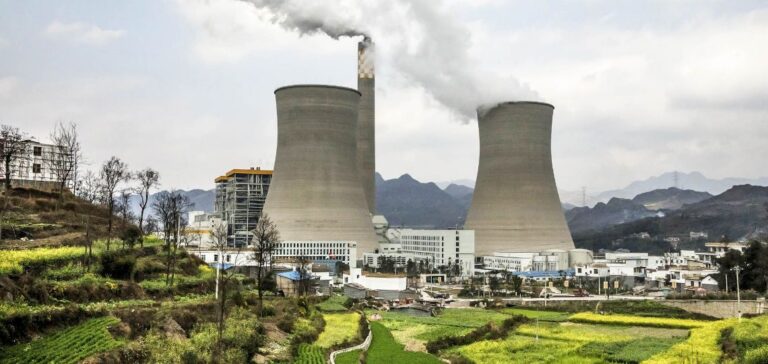Official data published by the National Bureau of Statistics revealed that China has failed to meet a key target for reducing its carbon dioxide emissions for 2024. The country, the world’s largest emitter of greenhouse gases, recorded a slight increase in emissions, although carbon intensity, measured by CO2 emissions per unit of GDP, decreased by 3.4%. However, this effort falls short of the official target of -3.9%. This delay undermines China’s commitments under the Paris Climate Agreement.
Delay on the five-year target
The Chinese government had committed to reducing carbon intensity by 18% between 2020 and 2025. However, experts believe this target is becoming increasingly difficult to achieve. While overall emissions increased moderately, they remain lower than the increases seen in previous years. Lauri Myllyvirta, an analyst at the Centre for Research on Energy and Clean Air (CREA), highlighted that China now finds itself in a precarious position to meet its goal of a 65% reduction in emissions by 2030 compared to 2005 levels.
Industry slows the energy transition
The industrial sector, still reliant on coal, continues to hinder decarbonisation efforts. In 2024, energy consumption in China rose by 4.3%, mainly due to industrial demand. While China has massively invested in renewable energy, such as solar and wind power, the growing demand for energy has significantly outpaced the integration of these new energy sources. This situation highlights the challenges the country faces in balancing economic growth with its energy transition.
New targets ahead
The Chinese government is expected to announce new emissions reduction targets under its 15th Five-Year Plan for the period 2026-2030. Although China missed submitting its updated nationally determined contributions (NDCs) to the UN in February, it confirmed that these contributions would be presented by the end of 2025. These targets are expected to include detailed strategies to achieve carbon neutrality by 2060 and reach the emissions peak scheduled for 2030.





















